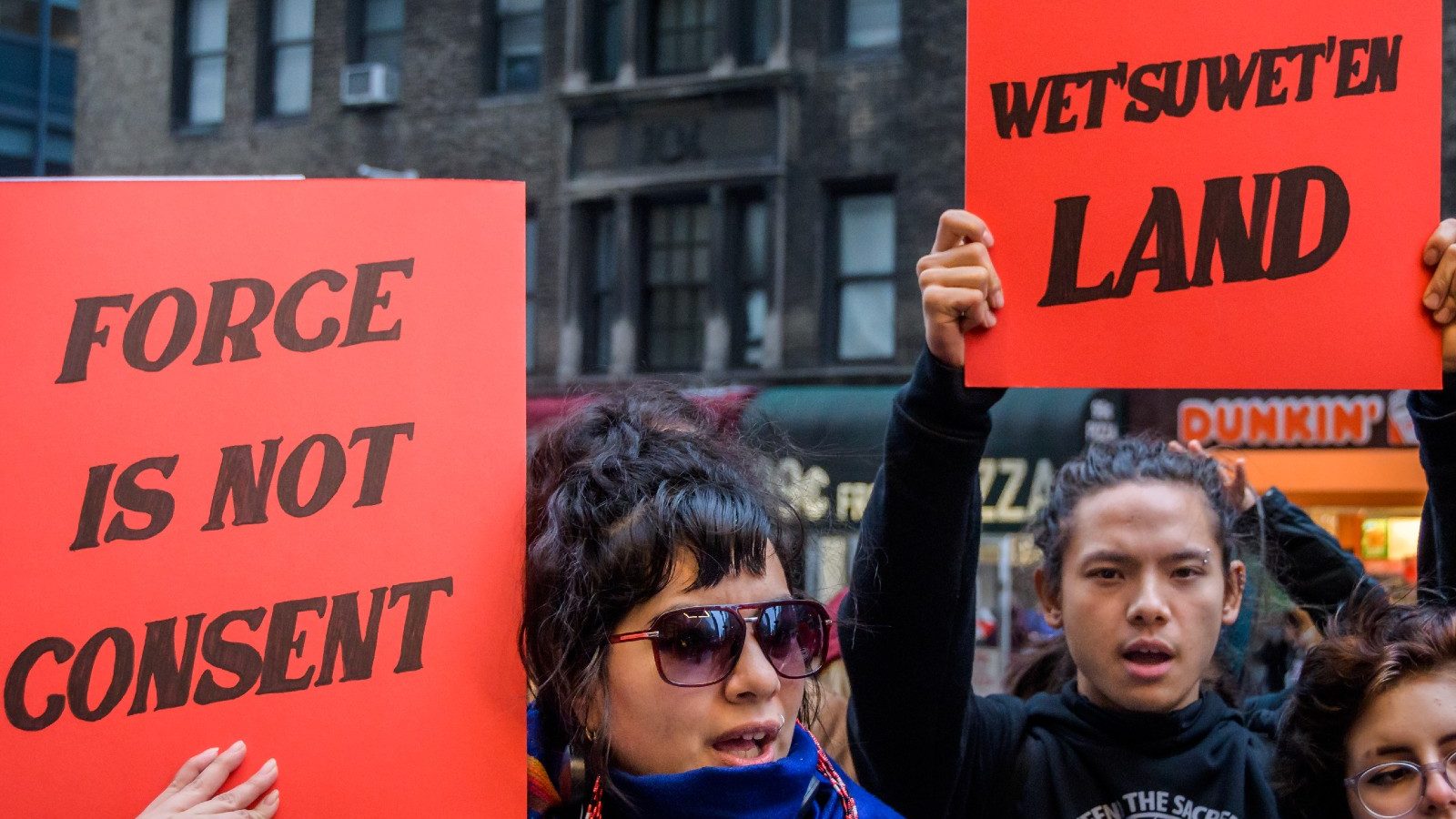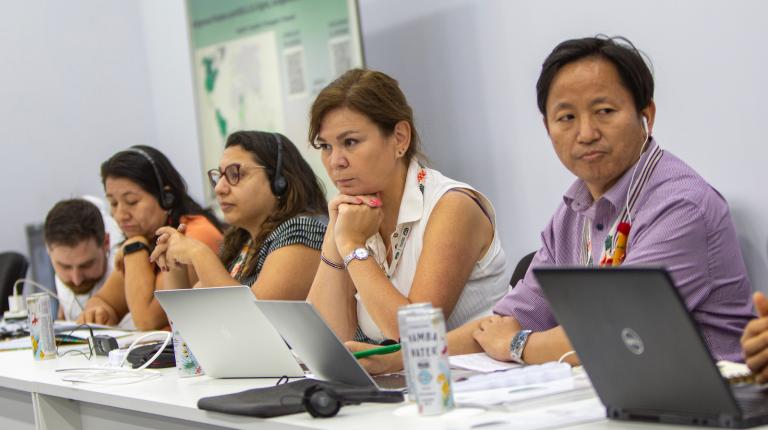Royal Canadian Mounted Police on Wednesday arrested five land defenders on Wet’suwet’en territory near the controversial construction of a natural gas pipeline that runs through central British Columbia.
The 416 mile-long Coastal GasLink pipeline is expected to bring 2.1 billion cubic feet per day of natural gas to a facility in Kitimat, B.C. before it is exported to global markets. Opposition among Wet’suwet’en has sparked rallies and rail blockades across Canada since 2019.
“This harassment and intimidation is exactly the kind of violence designed to drive us from our homelands,” said Wet’suwet’en Hereditary Chief Na’Moks in a press release. “The constant threat of violence and criminalization for merely existing on our own lands must have been what our ancestors felt when Indian agents and RCMP were burning us out of our homes as late as the 50s in our area.”
On Sunday, the Royal Canadian Mounted Police, or RCMP, responded to a complaint filed by an oil and gas worker with Coastal GasLink who reported that he had been “swarmed” by protestors wearing masks, that flares were allegedly fired, and that a chainsaw had been stolen from the work site during the incident. On Wednesday, police executed search warrants over the reported theft, arresting one person for allegedly preventing the RCMP from conducting a search and four more people for refusing to follow police orders.
In 1997, the Supreme Court of Canada ruled that the Wet’suwet’en held jurisdiction over its traditional territory, however, in 2018, British Columbia’s Oil and Gas commission and Environmental Assessment Office issued permits to Coastal GasLink to build through that territory. Land defenders say that because they did not give permission to build, the pipeline violates Wet’suwet’en and Canadian laws.
Land defenders also say the RCMP is violating the United Nations Declaration on the Rights of Indigenous Peoples, or UNDRIP – a non-binding resolution passed by the U.N. in 2007 and adopted by Canada in 2021.
The Wet’suwet’en First Nation organizes itself into five clans, each of which is subdivided into multiple “houses.” The house chiefs oversee specific areas within the First Nation’s traditional territory, which encompasses roughly 8,500 miles. The hereditary chiefs make decisions that govern their territory and according to land defenders, Wet’suwet’en hereditary chiefs never gave the company permission to build on their territory.
The arrests Wednesday come just weeks after Canada’s Civilian Review and Complaints Commission, the agency responsible for receiving and overseeing public grievances against the RCMP, announced they would began an investigation into police operations. The oversight commission said it would examine if police operations are within the guidelines of UNDRIP.
According to land defenders, in the days leading to this police action, Royal Canadian Mounted Police’s have been found patrolling Wet’suwet’en lands including near traplines and, harassing and intimidating Wet’suwet’en members and disrupting constitutionally protected cultural activities.
Since the first protests began at least 19 people have been arrested. The RCMP say their investigation into the incident is ongoing.




